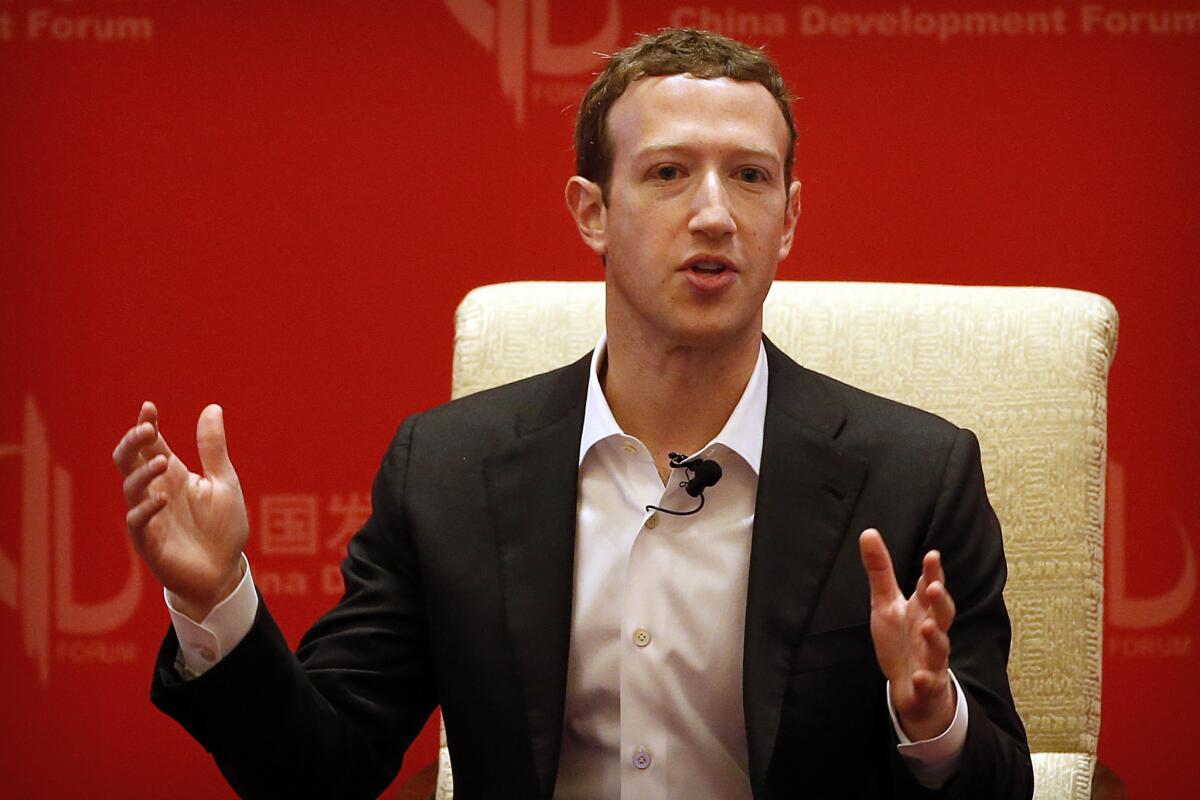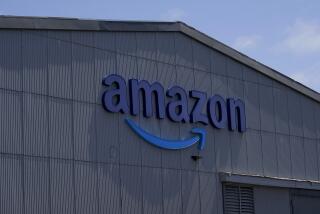Facebook hopes new Shops will get social media users shopping

Facebook Inc. is making another run at building a shopping empire — and this time it has the direct involvement of the company’s most important executive, Mark Zuckerberg.
The Facebook chief executive announced a handful of updates Tuesday signaling the company’s commitment to online shopping and commerce, one of the areas he highlighted as a priority this year. The main product, called Shops, is a new version of an existing Facebook feature with a similar name, and will let retailers upload product catalogs to their Facebook page or Instagram profile. Users can find these Shops directly from the retailer’s page, or by clicking on an ad that will redirect them to a Shop inside Facebook instead of the retailer’s own website.
Eventually, Zuckerberg says, these Shops will be accessible across the Facebook family, including Messenger and WhatsApp, giving retailers a way to reach Facebook’s nearly 3 billion users with one product catalog.
“This is really the first very major push that we’re going to be making into that next step around commerce,” Zuckerberg said in an interview Monday. He also highlighted the importance of Shops for small businesses, almost all of which are operating exclusively online during the COVID-19 pandemic. The “vast majority” of Facebook advertisers are small businesses, Zuckerberg said, so ensuring they can operate is important to Facebook’s business as well.
“All these tools are open for business even when your physical storefront can’t be,” he said on a livestream Tuesday announcing the new feature. Facebook‘s stock rose more than 3% after the news, adding to gains from earlier in the day.
The real significance of Tuesday’s announcement, though, may be Zuckerberg’s personal involvement in the effort. Facebook has built shopping features into its service before without much traction. Prior efforts around buy buttons in users’ feeds and selling virtual gifts never took off. Facebook has even offered product catalogs for years, including a Facebook Page Shop that lets brands list products within a “digital store front” — much of the same functionality that Zuckerberg announced Tuesday but under a different banner.
Zuckerberg has been heavily involved in Shops, spending significant time and attention on the product — usually a sign that a feature is here for the long haul. Zuckerberg said he has been meeting with the company’s small-business commerce team every day during the pandemic. Shops is also under the direction of another high-ranking Facebook official, Javier Olivan, who is running the company’s efforts to integrate all of its products and has led Facebook’s growth organization for years.
What’s uncertain is whether this added attention will lead to a different outcome than Facebook’s prior shopping efforts. Facebook has been good at helping people find new products through ads, but has never succeeded at becoming a place people go specifically to shop, Zuckerberg concedes. He has also learned lessons from previous e-commerce attempts, including the importance of making it as easy as possible for retailers to sign up. When Instagram first launched shopping in 2016, for example, Zuckerberg said Facebook made it difficult for businesses to sign up by forcing them to use all of Instagram’s software systems instead of enabling them to upload existing catalogs from other services.
With Shops, which are free to create, retailers can import existing product catalogs from Shopify Inc. or BigCommerce Inc. to expedite the process and eliminate barriers. “We think this will get the flywheel going a little bit more,” Zuckerberg said.
Facebook’s push into e-commerce could help boost its advertising business. If retailers believe they can close a sale directly on Facebook or Instagram, they may be more likely to promote products on those apps. But e-commerce could also offer an alternative revenue stream to advertising. When users buy a product directly through Instagram, for example, the company takes a small cut of those sales. Instagram only works with a few hundred retailers right now for direct checkout. Shops could eventually increase that number by hundreds of thousands, or even millions.
An entry into a new business line is likely to draw attention from regulators, too. The social network is already criticized for its size — it has 3 billion global users across all of its products — and is under antitrust scrutiny from multiple agencies, including the Federal Trade Commission, the U.S. Department of Justice and 47 state attorneys general.
“Any new thing that we do is going to have scrutiny,” Zuckerberg said. “That’s certainly something we think about in everything we do. But at the same time, I don’t think you can let the fact that there will be scrutiny and questions prevent you from doing things that you think are going to be good.”






